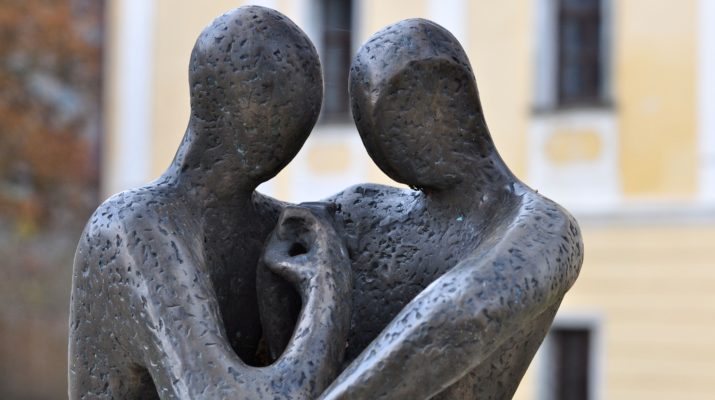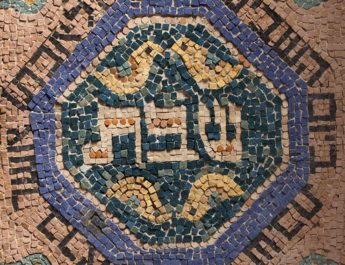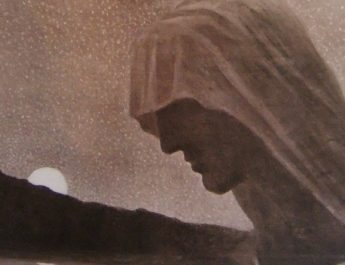Genesis 32:22-31
Ordinary C47
BibleHub
22 The same nightA he got upB and took his two wives,C his two maids,D and his eleven children,E
Notes on verse 22a
A “night” = layil. Properly, this refers to light twisting away. It is used for night or midnight. Figuratively, this can mean adversity.
B “got up” = qum. To arise, stand, accomplish, establish, abide. This is rising as in rising against, getting up after being sick or asleep, arising from one state to another, becoming powerful, or rising for action. It can also be standing in a figurative sense.
C “wives” = ishshah. From ish (man); perhaps from enosh (human, humankind, mortal); from anash (to be weak, sick, or frail). This is woman, wife, or female.
D “maids” = shiphchah. Root may mean to spread out – it would be the same root used in mishpachah, which means family or clan. This is maidservant, female slave, or female bondslave.
E “children” = yeled. From yalad (to bear, bring forth; can mean to act as midwife or to show one’s lineage). This is something born – so, offspring, youth, fruit.
and crossedF the fordG of the Jabbok.H 23 He took them and sentI them across the stream,J and likewise everything that he had.
Notes on verses 22b-23
F “crossed” = abar. This is to pass over or cross over. It is used for transitions, whether literal or figurative. It can also mean to escape, alienate, or fail. This is the root verb from which “Hebrew” is drawn.
G “ford” = ma’abar. Related to “crossed” in v22. 11x in OT. From abar (see note F above). This is a crossing place – so, a ford of a river or a pass of a mountain. Figuratively, it can mean overwhelming.
H “Jabbok” = yabboq. 7x in OT. Probably from baqaq (to empty, devastate, demoralize, luxuriate, depopulate). This is Jabbok or Yabboq, meaning “emptying” or “he will empty” or a “pouring forth.” See https://www.abarim-publications.com/Meaning/Jabbok.html#.Xw3bZShKhPY
I “sent” = abar. Same as “crossed” in v22. See note F above.
J “stream” = nachal. From nachal (to gain as a possession, divide for inheritance; to occupy for any reason). This is a brook, wadi, flood, river, stream. It can also refer to the valley in which there is a river during the rainy season. This word is also used for a mine-shaft.
24 JacobK was leftL alone; and a manM wrestledN with him until daybreak.O, P
Notes on verse 24
K “Jacob” = yaaqob. From the same as aqeb (heel, hind part, hoof, rear guard of an army, one who lies in wait, usurper). This is Isaac’s son and his descendants. The name means heel-catcher or supplanter.
L “left” = yathar. This is to jut over, remain behind, preserve, to excel. It can be to leave or to be in abundance.
M “man” = enosh. From anash (to be weak, sick, or frail). This is human, humankind, another. It is mortal.
N “wrestled” = abaq. 2x in OT – both in this passage. This is to float away like a mist, to bedust. Figuratively, it means to grapple or wrestle.
O “daybreak” = alah + shachar. Literally “the rising of the early light.” Alah is to go up, approach, ascend, be high, be a priority; to arise in a literal or figurative sense. Shachar is the dawn, morning, or early light.
P There is some wordplay in this passage – Yaaqob (Jacob) at the Yabboq (Jabbok) y’abeq (wrestling).
25 When the man saw that he did not prevailQ against Jacob, he struckR him on the hipS socket;T and Jacob’s hip was put out of jointU as he wrestled with him.
Notes on verse 25
Q “prevail” = yakol. This is to be able, endure, overcome, prevail.
R “struck” = naga. This is touch, reach, arrive, come near, strike. This is touching for any reason including sexual or violent.
S “hip” = yarek. Root may mean to be soft. This is thigh, side, body, shank. It can be used figuratively for genitalia.
T “socket” = kaph. From kaphaph (to bend – from a root meaning curve or bend down). This is palm of the hand or sole of the foot, footstep, grasp. Figuratively, it can also mean power.
U “put out of joint” = yaqa. 8x in OT. This is dislocated, severed, alienated, or figuratively abandoned. It can also mean rotting, which causes pieces to drop off bit by bit.
26 Then he said, “Let me go,V for the day is breaking.”
But Jacob said, “I will not let you go, unless you blessW me.”
27 So he said to him, “What is your name?”X
And he said, “Jacob.”
Notes on verses 26-27
V “let…go” = shalach. This is to send out, away, send for, forsake. It can also mean to divorce or set a slave free.
W “bless” = barak. This is to kneel, to bless. It is blessing God as part of worship and adoration or blessing humans to help them. It can be used as a euphemism to say curse God.
X “name” = shem. May be from sum (to put, place, set). This is name, fame, renown. A name was thought to indicate something essential about a person – something about their individuality. So, this word can also mean honor, authority, or character.
28 Then the man said, “You shall no longer be called Jacob, but Israel,Y for you have strivenZ with GodAA and with humans,BB and have prevailed.”
Notes on verse 28
Y “Israel” = yisrael. From sarah (to persist, exert oneself, contend, persevere, wrestle, prevail) + el (God or god). This is God strives or one who strives with God; new name for Jacob and for his offspring. This refers to the people and to the land.
Z “striven” = sarah. 2x in OT – here and in Hosea 12:3 describing this incident. Related to “Israel” in v28. See note Y above.
AA “God” = Elohim.
BB “humans” = ish. Related to “wives” in v22. See note C above.
29 Then Jacob askedCC him, “PleaseDD tellEE me your name.”
But he said, “Why is it that you ask my name?” And there he blessed him.
Notes on verse 29
CC “asked” = shaal. This is to ask, inquire, beg, borrow, desire, request. It can also mean to demand.
DD “please” = na. This particle is used for requests or for urging. It can be we pray, now, I ask you, oh. This is the same “na” in “hosanna.”
EE “tell” = nagad. This is to declare, make conspicuous, stand in front, manifest, predict, explain.
30 So Jacob calledFF the placeGG Peniel,HH saying, “For I have seen God faceII to face, and yet my lifeJJ is preserved.”KK
Notes on verse 30
FF “called” = qara. This is to call or call out – to call someone by name. Also used more broadly for calling forth.
GG “place” = maqom. Related to “got up” in v22. From qum (see note B above). This is a standing, which is to say a spot or space a place. It can also refer to a locality or a physical/mental condition. HaMaqom is also a Jewish name for God – the place, i.e. the Omnipresent One.
HH “Peniel” = penuel. Related to “God” in v28. 9x in OT. From panim (face, anger, countenance); {from panah (to turn, consider, to face, turn away, appear, look)} + el (see note AA above). This is Peniel or Penuel, meaning “face of God.”
II “face” = paneh. Related to “Peniel” in v30. See note HH above.
JJ “life” = nephesh. Related to naphash (to refresh or be refreshed). This is soul, self, person, emotion. It is a breathing creature. Can also refer to appetites and desires.
KK “preserved” = natsal. This is to snatch someone or something away in a good sense – as rescue, defend, or deliver – or in a bad sense – as strip or plunder.
31 The sunLL roseMM upon him as he passedNN Penuel, limpingOO because of his hip.
Notes on verse 31
LL “sun” = shemesh. This is sun or toward the east. Its root may mean being brilliant. Figuratively, this could be a ray or an arch.
MM “rose” = zarach. 18x in OT. This is to rise, shine, or dawn. It can also be used to describe symptoms of leprosy.
NN “passed” = abar. Same as “crossed” in v22. See note F above.
OO “limping” = tsala. 4x in OT. Perhaps from tsela (rib, side, leaf, plank, side of a person or object; quarter of the sky). Root may mean to curve. This is lame or limping.
Image credit: “Jacob Wrestling with the Angel” at the market square in Grafenstein, Austria. Photo by Johann Jaritz.




